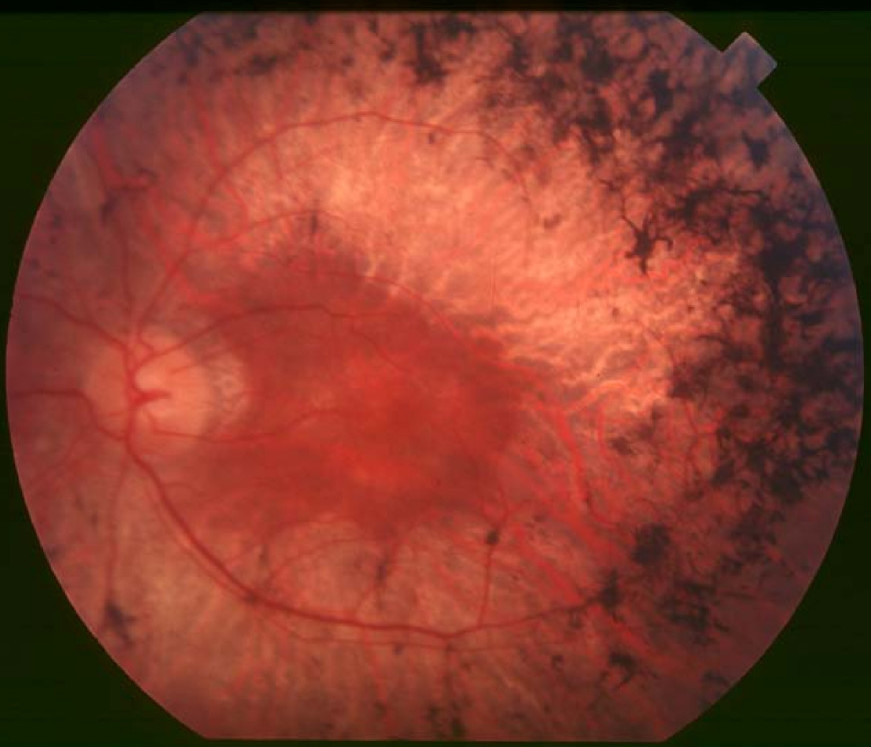Retinitis Pigmentosa 40

A number sign (#) is used with this entry because retinitis pigmentosa-40 (RP40) is caused by homozygous or compound heterozygous mutation in the PDE6B gene (180072), encoding the beta subunit of rod phosphodiesterase, on chromosome 4p16.
Mutations in the PDE6B gene also cause congenital stationary night blindness (CSNBAD2; 163500).
For a phenotypic description and a discussion of genetic heterogeneity of retinitis pigmentosa, see 268000.
Clinical FeaturesMcLaughlin et al. (1993) identified 6 patients from 3 families with autosomal recessive retinitis pigmentosa (RP) and mutations in the PDE6B gene. All affected individuals had clinical findings typical of RP. They reported absent night vision from early childhood. Ophthalmoscopy revealed attenuated retinal vessels and typical intraretinal bone spicule pigment around the midperiphery.
Among 19 Spanish families with autosomal recessive RP, Bayes et al. (1995) identified 1 carrying a homozygous mutation in PDE6B (RP40). The proband was a 39-year-old man who reported absence of night vision since childhood. Ophthalmoscopy revealed a pale retina, attenuated retinal vessels, and typical intraretinal bone spicule pigment in the midperiphery and around the periphery. There was no detectable rod or cone response on ERG.
Hmani-Aifa et al. (2009) studied a consanguineous Tunisian family in which autosomal recessive RP cosegregated with Usher syndrome (USH2C; 605472). The family had been originally reported by Hmani et al. (1999).
Molecular GeneticsMcLaughlin et al. (1993) detected 4 mutations in the PDE6B gene (e.g., 180072.0001) in 3 families with autosomal recessive RP.
Bayes et al. (1995) found homozygosity for a 71-bp duplication in exon 1 of the PDE6B gene (180072.0006) in 1 of 19 cases of autosomal recessive RP.
In a large consanguineous Tunisian family in which Usher syndrome and RP cosegregated, Hmani-Aifa et al. (2009) found homozygosity for a missense mutation in the PDE6B gene (180072.0007) in individuals with isolated RP. Heterozygous mutation carriers were unaffected. Individuals with Usher syndrome carried a homozygous mutation in the GPR98 gene (602851.0006). One family member who was doubly homozygous for both mutations had a more severe ocular phenotype. Two family members who were doubly heterozygous for both mutations were unaffected at ages 82 and 65 years, respectively.